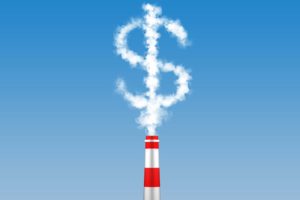Carbon Tax is a failure

I am not a fan of the Carbon tax and I don’t think it will ever work in the way it is intended. It is a punishment for a feel good attempt to curb climate change and it affects every one in the most negative ways with little to no benefit. And I will explain why.
When people think about the carbon tax they think this is good, this will cause people to drive less. But the sad fact is most people that drive are not going to drive less because driving is a necessity of life. Is a parent that drives kids to school going to decide one day a week the kid will stay home to save on driving… No. People will just pay out of pocket and for those with the least amount of money it is going to hurt them the most. But say some one decided they will change from driving a car to taking transit. The sad fact they are still paying for the Carbon tax.
The carbon tax affects all methods of transportation. The transit system is not immune to the tax so the cost of taking the bus is higher to support the extra cost to the transit system. Trucks that deliver goods to stores pay the carbon tax and those costs get passed down the chain so the stores pay a higher rate for deliveries and pass that on the consumer. City services such as Police, Ambulances and the Fire Department also end up paying this tax costing the tax payer more money for these basic services robbing the cities the ability to fund other things or increasing property taxes to support the carbon tax. Home owners that have to pay higher property taxes will charge more for rent. Essentially the Carbon tax hits every one in multiple ways which is not calculated. The only calculations people see is the cost at the pump. Not the cost to the fruits and vegetables they eat, the amount they pay for rent and the cost of recreational services offered by the city all having to recoup higher costs from the tax.
This overall increase on everything is the most insidious part of the carbon tax. And one of the intended targets such as large polluters from industry will just pay the tax and pass those costs down as part of the manufacturing cost to the consumer. So at what stage does this tax actually help with reducing pollution when the majority of people are not really doing anything excessive beyond just trying to live a simple regular life.
What I would prefer to see is positive incentives for people to reduce the carbon foot print. Electric car rebates, building code changes requiring the connection points in parking garages for residences to purchase and add charge stations as required. Offer a power rebate bonus at the end of a 12 month period for using less fuel. Offer rebates for companies that allow and encourage working from home. Introduce distance based Transit fares with the first 5 km free for every one to encourage the use of transit for short trips. These are all positive incentive systems that will allow those that can make the change to do so with out punishing the rest of us.
Another alternative to the carbon tax current method of collection is to set an amount that every one is entitled to as a basic exemption based on locations. The way it would work is that you pay at the pump as you do now but you kept your receipt for a 100% rebate that can be submitted at tax time up to the allowed limit. For argument sake say every personal user is allowed 3000 L of fuel per year, then the tax payer can submit tax receipts up to 3000L to get a full rebate back for that first 3000L of purchased fuel. City services for police, fire, ambulance get a 100% rebate on ALL fuel so does public services like Ferries and Transit. The transportation of goods can also be rebated based on the cargo so essentials like Food is not taxed at all. The limit of rebate for trucks could be set to scale based on the age of the vehicle and the vehicles fuel economy rewarding trucking companies with newer fleets that are more efficient with a much larger carbon exemption. Industry that reduces emissions through investment should get rewarded by large exemptions. If a business reduces emissions by 10% the exemption should be increased by 20% for every effective 1 percent of reduction.
While this is not a perfect solution its a solution that does not punish people, allows for basic exemptions that people can attempt to live with in and provides incentives to invest and reduce. The current blanket approach just makes life harder for every one and with a cost of doing business mentality passing down the buck for the increased costs little changes and people suffer.
Ultimatly there is much much more that can be done to reduce the carbon foot print but that is for another post.